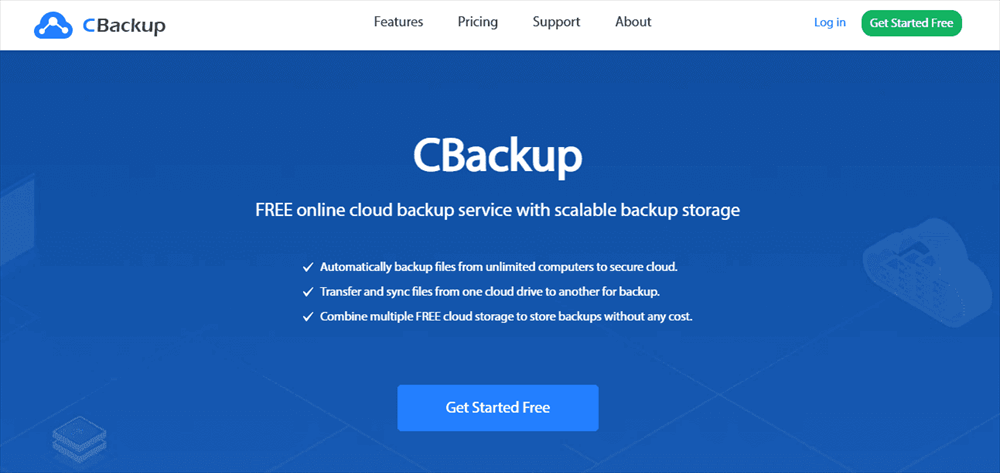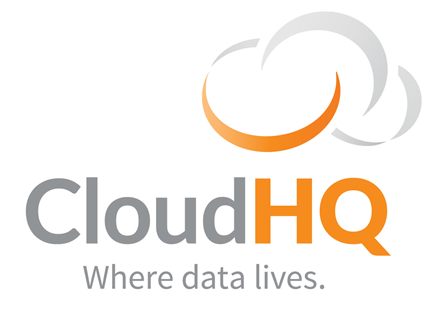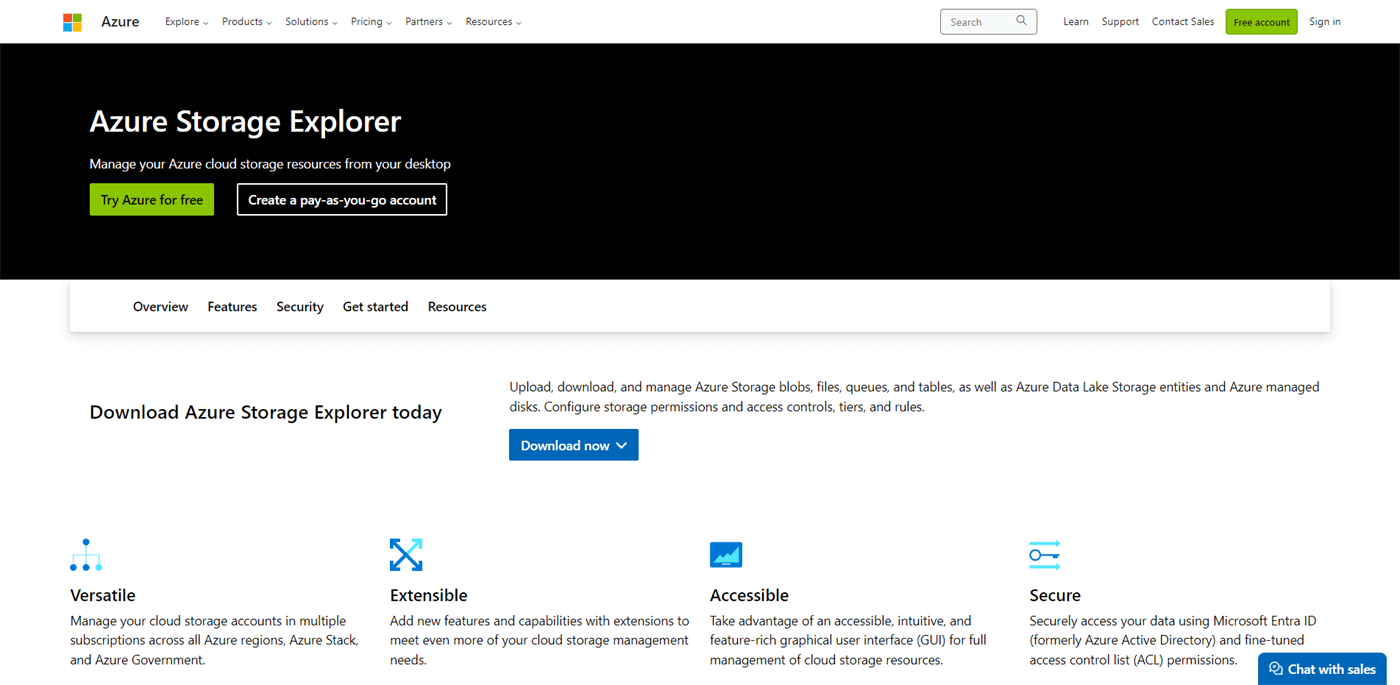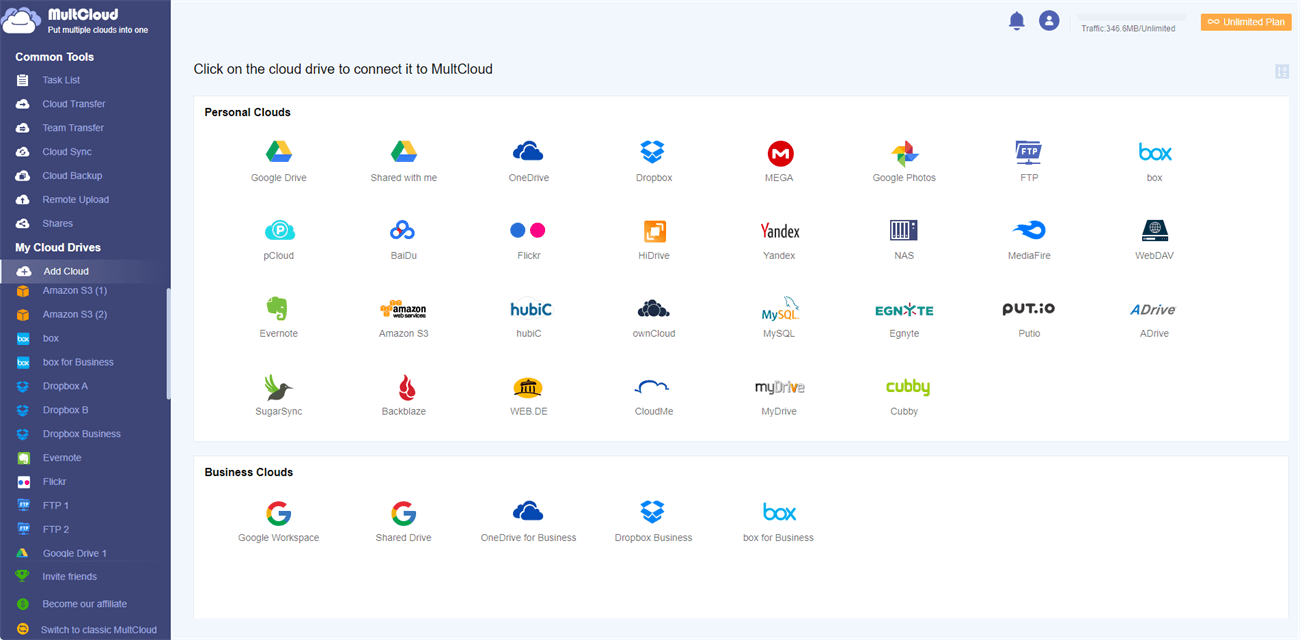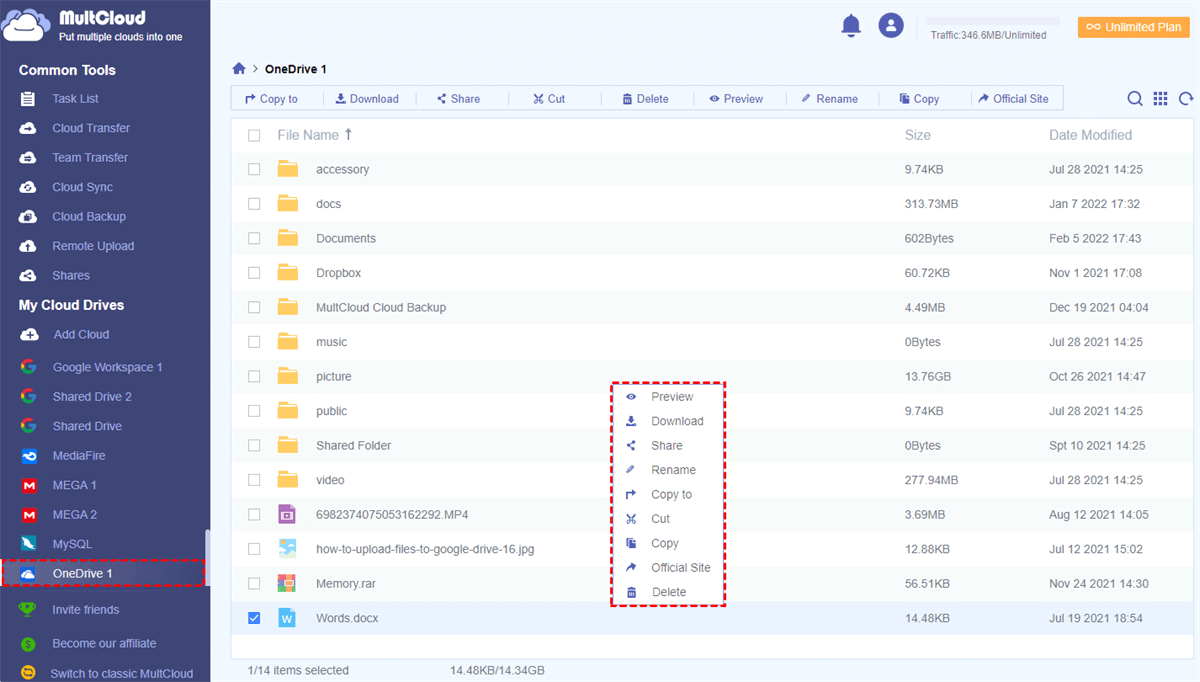Why Need the Best Cloud Storage Manager?
Living in an era of information explosion, you are very likely to have a large amount of data in business, study, and daily life. Certainly, a hard disk is not enough to safely store data. This trend of data explosion led to a massive increase in demand for cloud storage services. And users like you start to create accounts of the cloud drive you like to store as much data as you can online.
What’s more, you may register more accounts not only to acquire more free storage but also to save different files in better order. However, the question arises: once you have many clouds from different companies, how do you manage multiple cloud storage accounts effectively? That’s why you may need to choose the best cloud manager app that could help you use several clouds at the same time for stress-free.
With the help of the best free cloud manager, you don’t have to try hard to remember which cloud you have stored the data you want because you can access all your cloud accounts with a single login. And you can simply copy or transfer files between cloud storage services without downloading and uploading anymore. All the cloud storage management can be done in one platform without switching accounts.
How to Choose the Best Cloud Storage Manager [Top 5]
After constant testing, we have compared lots of free cloud storage managers and finally sum up 3 great free cloud file managers for you to choose from according to your specific needs.
We think about which is the best cloud file manager in terms of the comprehensive cloud file access ability, the easy-to-use functions for data transfer, sync, or backup, the reliable data transfer process, and other useful features.
Here’s the result for choosing the best cloud management software.
1. MultCloud
MultCloud is being used by most people and companies around the world for its user-friendly interface, excellent data transfer features, and most secure cloud file management with the smallest cost.
Pros:
- Most Major Clouds Supported: MultCloud supports more than 30 brands of cloud storage services including personal clouds like Google Drive, OneDrive, Dropbox, Box, MRGA, Flickr, pCloud, and business clouds like Google Workspace, OneDrive for Business, Dropbox Business, and Box for Business. What’s more, the FTP servers and WebDAV are also supported.
- Unique Features with Simplest Steps: You can realize cloud-to-cloud transfer (scheduled and offline), sync (10 sync modes), backup (backup version management), and team migration all with a single click. MultCloud also allows you to upload files to cloud storage directly from URLs, magnet links, and torrent files without downloading. What’s more, you can share cloud files from MultCloud with the public, private, and source modes. And the basic cloud built-in functions like upload and download are also supported.
- Lowest Cost with Generous Data Traffic: You can manage all your clouds in MultCloud for free and get 5 GB of free data traffic to transfer data across clouds every month.
Cons:
- Only Provide Web Service: MultCloud doesn’t support desktop or mobile applications.
2. CBackup
CBackup has similar functions as MultCloud in the ability to transfer or sync data from one cloud to another. But another special attraction of CBackup is its ability to backup data between the local and cloud.
Pros:
- Large Backup Storage: CBackup allows you to back up 2000 GB of data per month from your computer to the cloud for free, and the schedule plan is supported as well.
- Easy Combination of Clouds: CBackup can help you combine all your clouds to get more free and large cloud storage.
Cons:
- Only Provide Application for Windows: You can only use CBackup on the website or in Windows 11/10/8.1/8/7/XP.
3. CloudHQ
CloudHQ, also a similar web service to MultCloud, provides service for cloud-to-cloud sync in one-way and two-way. It is closely linked to Gmail to boost productivity through emails.
Pros:
- Full Integration with Google Apps: CloudHQ can connect all Google-related apps with other cloud services to give you full protection of your Google apps.
Cons:
- Limited Cloud Management Functions: You can only experience the cloud file sync function with CloudHQ. And the supported clouds are less than enough.
4. Azure Storage Explorer
Microsoft Azure Storage Explorer is a user-friendly graphical application designed for easy access to data across diverse Azure storage accounts, which serve as repositories for data originating from various platforms. This robust cloud storage file manager empowers users to conveniently edit data across all their accounts.
Pros:
- Supports Various Data Types and Systems: You can handle various data types from different services, manage Azure cloud storage resources from Windows, macOS, or Linux, connect securely through HTTPS, work offline, and effortlessly manage blobs, tables, queues, and files.
Cons:
- Need to Transfer Data for Management: It requires transferring data from other clouds to your Azure storage accounts for management, and its many features can be challenging for non-professionals to use.
5. AWS Storage
AWS Storage doesn't just offer one kind of storage service. It gives you various options to handle different types of files and data more efficiently. These options include storage for keeping data available all the time, storage for databases, cloud migration, long-term archiving, and storage for backup during emergencies.
Pros:
- AWS Storage offers highly user-friendly documentation.
- It ensures secure and highly available storage for all your data in one place.
Cons:
- Lack of deduplication resulted in higher bandwidth usage, reducing the expected return on investment. The increased egress charges were also undesirable.
- The initial setup and configuration proved to be challenging to implement.
How to Use the Best Cloud Storage Manager - MultCloud
According to the above comparison of the best cloud management platforms, you can find that MultCloud may be the best cloud storage management service according to the unique cloud management functions and the cost-effective subscription. You can follow the clear instructions below to know how to use this multiple cloud storage manager, MultCloud, to easily manage all your clouds safely and conveniently for free.
Step 1. Sign up for MultCloud
Create a MultCloud account and log in to its official website.
Step 2. Add Clouds to MultCloud
Click “Add Cloud” and choose the icon of a cloud drive, then authorize MultCloud to connect this account and add the cloud account to MultCloud.
Tip: MultCloud uses an OAuth authorization system supported by major clouds like Google Drive and Dropbox to connect your clouds without keeping the corresponding username and password.
Step 3. Manage Multiple Cloud Storage Services
Open a cloud account from the left “My Cloud Drives” list and you can upload, download, cut, copy, delete, preview, or rename files in this cloud to manage cloud files.
Step 4. Transfer/Sync/Backup Data between Clouds Seamlessly
You can choose one of those wonderful features under the “Common Tools” list to enjoy and make full use of the best cloud storage manager, MultCloud.
- Cloud Transfer: Transfer a large number of files from one cloud to another fast with a schedule plan and file filter.
- Team Transfer: Migrate data between selected business cloud accounts with a corresponding list of users.
- Cloud Sync: One-key sync data between clouds with scheduled plans, 4 basic modes like Real Time Sync and Simple Sync, and 6 advanced one-way modes (advanced modes are only for MultCloud subscribers).
- Cloud Backup: Backup files and folders between the cloud with the offline ability and the best convenient backup version management.
- Remote Upload: Save online files to a cloud directly by entering the link of the files to MultCloud.
- Email to PDF: Convert emails to PDFs and save them locally or to your clouds with attachments.
Conclusion
After reading through the complete guide about what is the best cloud storage managers, now you can choose the best service for cloud-to-cloud management as you like. And if you don’t want to log in to different clouds every time but still need to use clouds in an initial way, MultCloud can give you great help to manage multiple Google Drive accounts and other cloud storage services without taking any extra time and effort.
What is a cloud storage manager?
What are the key features of a good cloud storage manager?
Can I use a cloud storage manager on my mobile device?
MultCloud Supports Clouds
-
Google Drive
-
Google Workspace
-
OneDrive
-
OneDrive for Business
-
SharePoint
-
Dropbox
-
Dropbox Business
-
MEGA
-
Google Photos
-
iCloud Photos
-
FTP
-
box
-
box for Business
-
pCloud
-
Baidu
-
Flickr
-
HiDrive
-
Yandex
-
NAS
-
WebDAV
-
MediaFire
-
iCloud Drive
-
WEB.DE
-
Evernote
-
Amazon S3
-
Wasabi
-
ownCloud
-
MySQL
-
Egnyte
-
Putio
-
ADrive
-
SugarSync
-
Backblaze
-
CloudMe
-
MyDrive
-
Cubby

.png)
